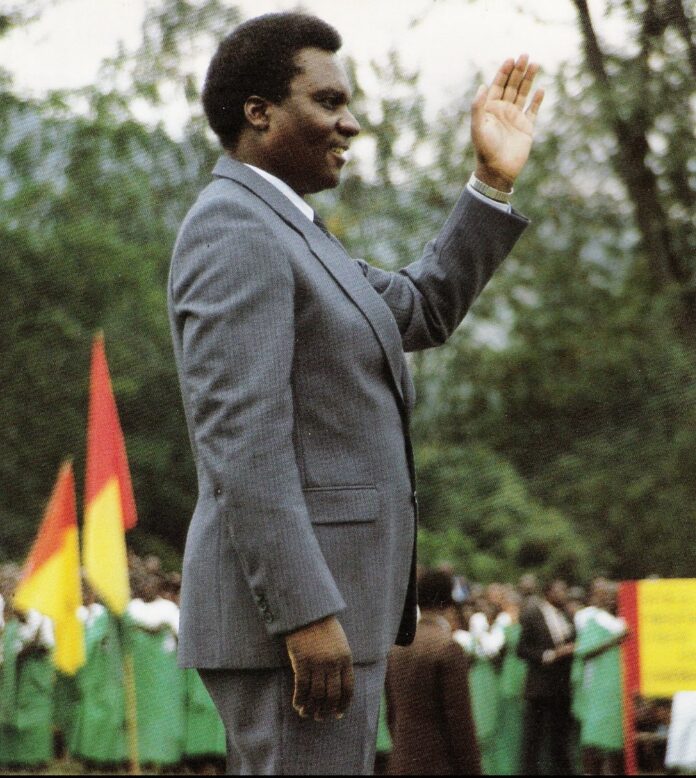On April 3, 1994, Jean Luc Habyarimana, the younger son of Rwanda’s former President Juvénal Habyarimana, shared an intimate recount of his final private moments with his father, shedding light on a personal narrative against the backdrop of a nation on the brink of turmoil. At the age of 18, Jean Luc found himself unwittingly spending his last moments alone with his father, a man who had been navigating the complexities of a peace process in Rwanda.
The Arusha Peace Accords, signed in August 1993, aimed at ending years of conflict between the Rwandan government and the Rwandan Patriotic Front (FPR), mandated a significant sharing of military and governmental power with the FPR. Despite the promise of these accords, the actions of the FPR since 1990, including mass atrocities and the displacement of over a million people, cast a shadow of doubt over the feasibility of peace and democratic elections in Rwanda.
In an environment fraught with tension and the looming threat of abduction by the FPR, Juvénal Habyarimana took the precaution of sending Jean Luc and his sister to study in Egypt in 1993, upon advisement from international security services. Their return to Rwanda for the Easter holidays in 1994 was met with a stark change in their daily lives; the siblings found themselves navigating a landscape of heightened security, a far cry from their previous experiences of relative freedom.
This recount includes a poignant journey to Gisenyi, where Jean Luc and his father traveled together, sharing conversations and values. This trip not only highlighted the close bond between father and son but also served as a moment of transmission of wisdom and principles from Juvénal to Jean Luc.
Their stay in Gisenyi was marked by a luncheon with friends and diplomats, including Jacques-Roger Booh-Booh, the personal representative of the UN Secretary-General and head of the United Nations Assistance Mission for Rwanda (MINUAR). A chilling revelation came to light during this gathering: a warning of a plot against Juvénal Habyarimana’s life, directly attributed to Paul Kagame, then the leader of the FPR.
This personal narrative, as recounted by Jean Luc Habyarimana, provides a unique lens through which to view the events leading up to one of the most tragic periods in Rwanda’s history. It underscores the complexity of the political landscape in Rwanda prior to the genocide, highlighting the tensions and threats that permeated the highest levels of government and society.
Jean Luc’s reflections, thirty years after these events, invite a critical examination of the role of the FPR and its leadership in the conflict and the subsequent genocide. It raises questions about accountability, the narratives of history, and the personal stories that are often overshadowed by the broader strokes of political analysis.





























































